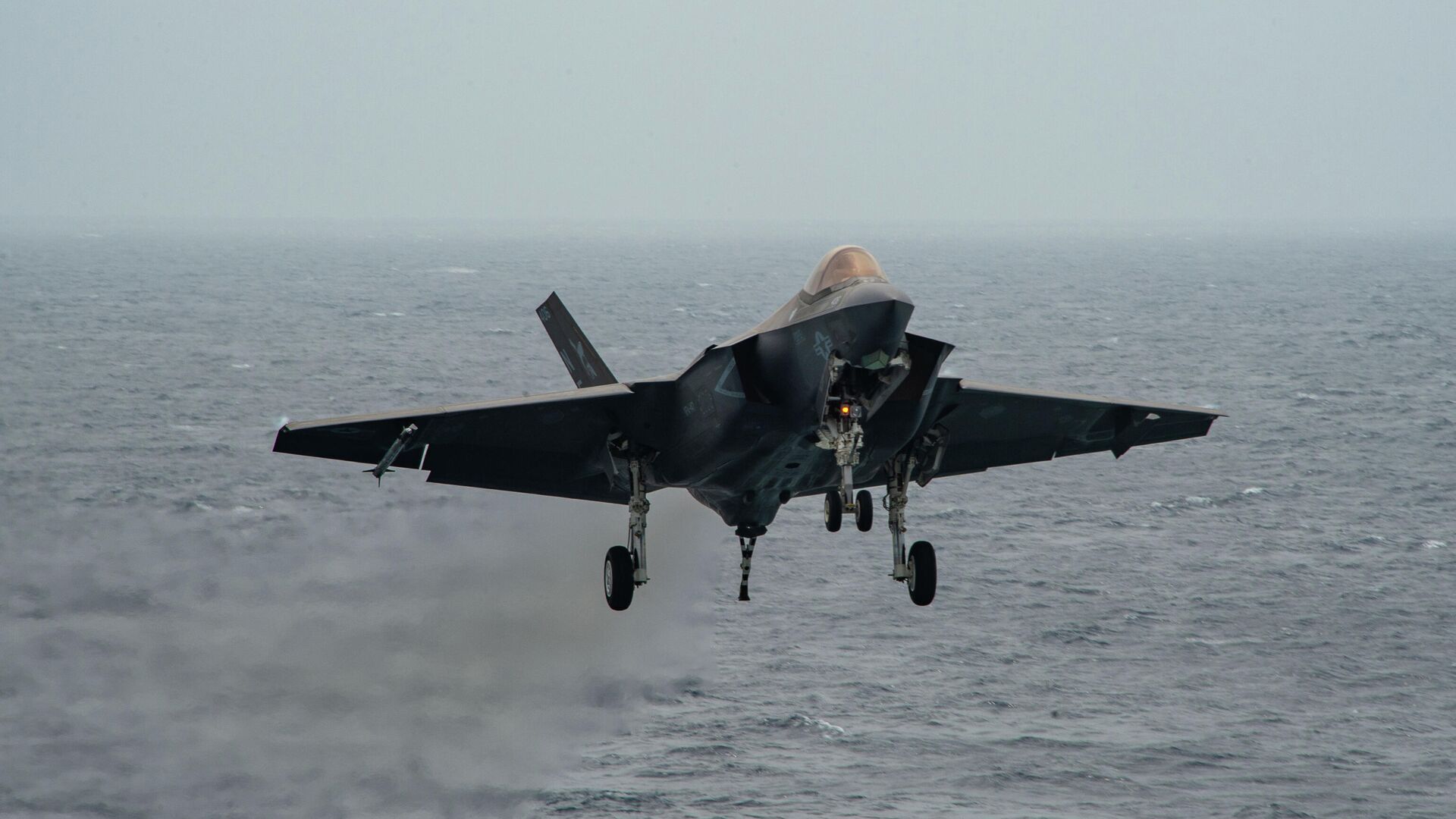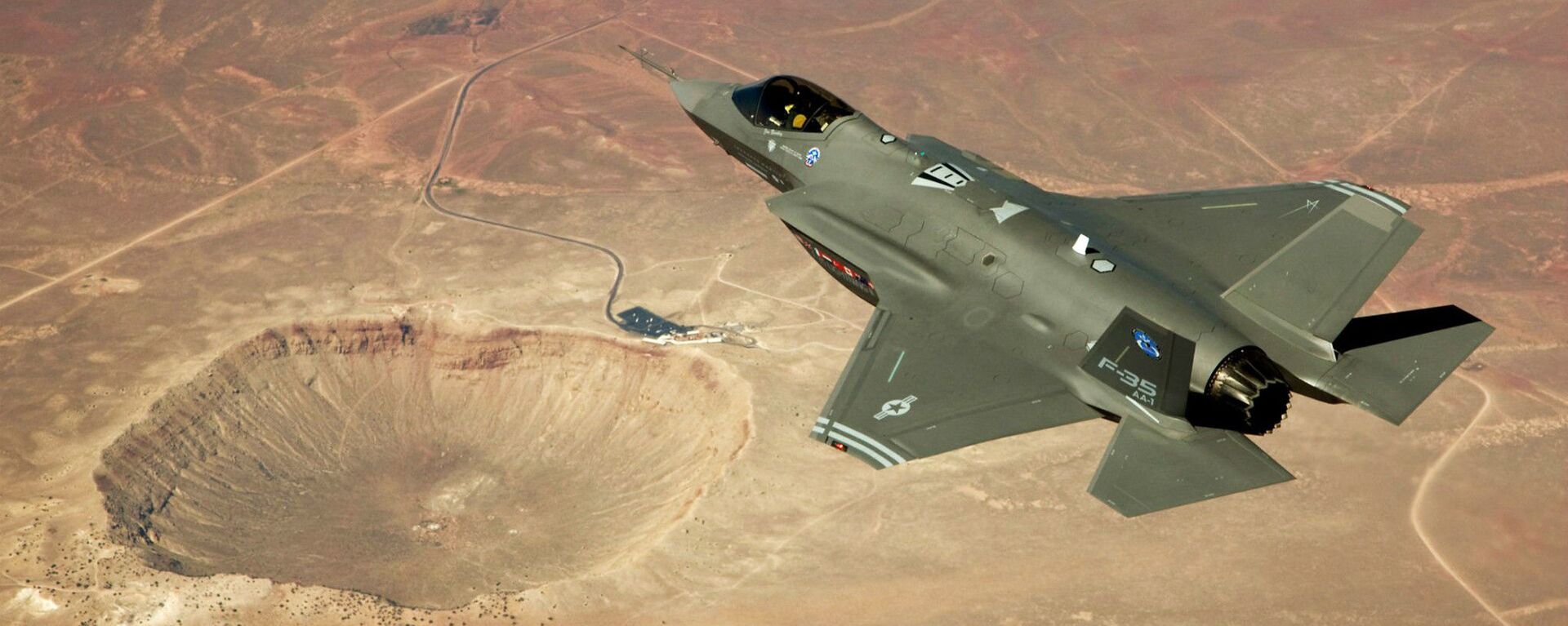https://sputnikglobe.com/20230612/pentagon-reportedly-refuses-to-take-any-more-f-35s-until-system-woes-are-solved-1111097144.html
Pentagon Reportedly Refuses to Take Any More F-35s Until System Woes Are Solved
Pentagon Reportedly Refuses to Take Any More F-35s Until System Woes Are Solved
Sputnik International
The Pentagon will reportedly not accept any more new F-35s from Lockheed Martin until major problems with new technology hardware upgrades are solved, with delays expected to last at least into next year.
2023-06-12T23:31+0000
2023-06-12T23:31+0000
2023-06-12T23:30+0000
military
pentagon
lockheed martin
fort worth
texas
f-35
military hardware
https://cdn1.img.sputnikglobe.com/img/07e6/01/1f/1092646111_0:225:3077:1956_1920x0_80_0_0_59cb95ef8fe56523780d215c00845b02.jpg
The Pentagon's freeze on accepting any more new aircraft equipped with the Technology Refresh 3 (TR-3) hardware will begin in July, US media revealed in a Monday report. The decision means Lockheed Martin may have to store dozens of the planes at its main factory in Fort Worth, Texas, for most of 2023 and possibly as long as until spring 2024, the defense newspaper said. Starting later in the summer, F-35 aircraft coming off the production line with TR-3 hardware will not be accepted until relevant combat capability is validated, an F-35 Joint Program Office (JPO) spokesman said in a statement quoted by the outlet in another report. In March, F-35 program executive officer Lieutenant General Mike Schmidt informed Congress that the JPO’s schedule risk assessment projected the TR-3 system would only be completed by April 2024. Lockheed Martin has said it will be delivered by December this year. The F-35 is still mired in its development stage after 20 years, and the 30-year-long acquisition program is now projected to cost at least $1.7 trillion making it the most expensive military aircraft and program in history.
https://sputnikglobe.com/20230526/85-million-loss-of-f-35-spare-parts-is-business-as-usual-for-pentagon-1110610076.html
fort worth
texas
Sputnik International
feedback@sputniknews.com
+74956456601
MIA „Rossiya Segodnya“
2023
Sputnik International
feedback@sputniknews.com
+74956456601
MIA „Rossiya Segodnya“
News
en_EN
Sputnik International
feedback@sputniknews.com
+74956456601
MIA „Rossiya Segodnya“
Sputnik International
feedback@sputniknews.com
+74956456601
MIA „Rossiya Segodnya“
pentagon, us department of defense, f-35, lockheed martin, technology issues, military hardware,
pentagon, us department of defense, f-35, lockheed martin, technology issues, military hardware,
Pentagon Reportedly Refuses to Take Any More F-35s Until System Woes Are Solved
WASHINGTON (Sputnik) - The Department of Defense will reportedly not accept any more new F-35 Joint Strike Fighters from the aircraft's main contractor Lockheed Martin until major problems with new technology hardware upgrades are solved, with delays expected to last at least into next year.
The Pentagon's freeze on accepting any more new aircraft equipped with the Technology Refresh 3 (TR-3) hardware will begin in July, US media revealed in a Monday report.
The decision means Lockheed Martin may have to store dozens of the planes at its main factory in Fort Worth, Texas, for most of 2023 and possibly as long as until spring 2024, the defense newspaper said.
Starting later in the summer, F-35 aircraft coming off the production line with TR-3 hardware will not be accepted until relevant combat capability is validated, an F-35 Joint Program Office (JPO) spokesman said in a statement quoted by the outlet in another report.
In March, F-35 program executive officer Lieutenant General Mike Schmidt informed Congress that the JPO’s schedule risk assessment projected the TR-3 system would only be completed by April 2024. Lockheed Martin has said it will be delivered by December this year.
The F-35 is still mired in its development stage after 20 years, and the 30-year-long acquisition program is now projected to cost at least $1.7 trillion making it the most expensive military aircraft and program in history.



